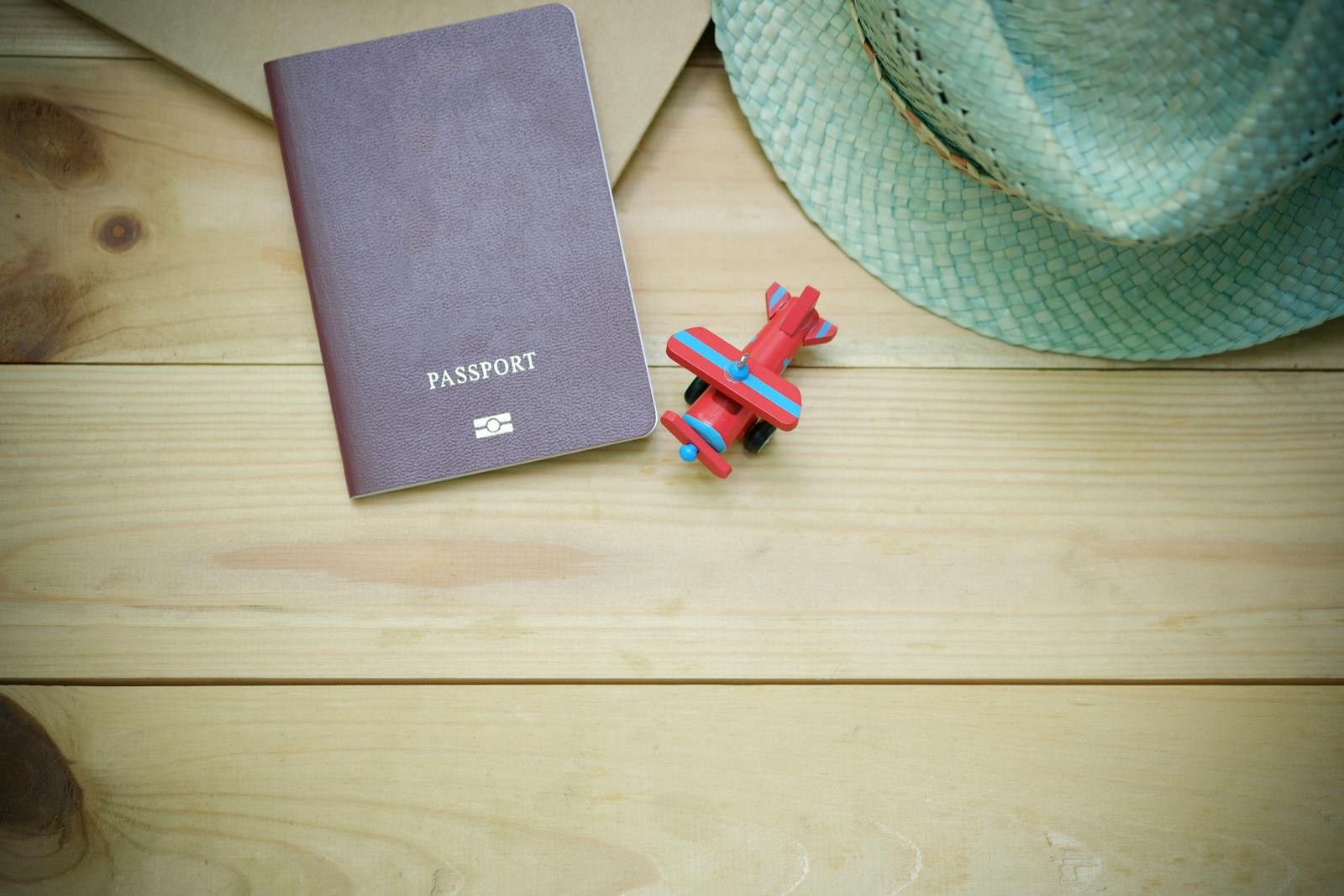Self-sponsorship in the UK is not a specific type of visa, but rather a strategic approach for business owners to live and work in the UK. This involves setting up or investing in a UK-based business that can sponsor you under the Skilled Worker visa category. While there is no dedicated self-sponsorship visa, this route enables entrepreneurs to manage their own businesses in the UK. This article provides a comprehensive guide on the requirements, eligibility, costs, and step-by-step instructions on how to apply for self-sponsorship in the UK.
Key Takeaways
- Self-sponsorship is a strategy, not a specific visa category, that allows business owners to live and work in the UK.
- You must establish or invest in a UK-based business that can sponsor you under the Skilled Worker visa category.
- Accurate and complete information is crucial when filling out the self-sponsorship visa application form to avoid delays or refusals.
- Compliance with UK business laws and maintaining a sponsor licence are essential for successful self-sponsorship.
- Seeking expert advice is highly recommended, as the self-sponsorship route can be complex and challenging.
Understanding Self-Sponsorship in the UK
 Self-sponsorship in the UK is not a specific type of visa, but rather a way for business owners to stay/live in the UK to run their active trading business. This involves using a Skilled Worker visa, combined with having a sponsor licence for your own UK-based business. Essentially, it’s like sponsoring yourself through your business to work in the UK. However, it’s important to seek expert advice, as this isn’t a straightforward visa category.
Self-sponsorship in the UK is not a specific type of visa, but rather a way for business owners to stay/live in the UK to run their active trading business. This involves using a Skilled Worker visa, combined with having a sponsor licence for your own UK-based business. Essentially, it’s like sponsoring yourself through your business to work in the UK. However, it’s important to seek expert advice, as this isn’t a straightforward visa category.
Eligibility Criteria for Self-Sponsorship
Who Can Apply?
Self-sponsorship UK is open to anyone who satisfies all of the following: the applicant should possess some knowledge, skill, or qualification in the industry where they want to establish their business. This route is particularly suitable for entrepreneurs, business owners, and skilled professionals looking to move to the UK.
Necessary Qualifications and Experience
When considering self-sponsorship, the following specific key personnel requirements should be kept in mind:
- Relevant Qualifications: Applicants must have qualifications that are recognized in their industry.
- Professional Experience: A proven track record in the relevant field is essential.
- Business Acumen: Demonstrated ability to run a business successfully.
Business Requirements
To qualify for self-sponsorship, the business must meet certain criteria:
- Genuine Vacancy: The business must create a genuine vacancy that cannot be filled by the local workforce.
- Financial Stability: The business should have a solid financial foundation to support its operations and the applicant’s stay in the UK.
- Compliance with UK Laws: The business must adhere to all UK business laws and regulations.
For more detailed information, you can refer to the Self-Sponsorship Guide.
Steps to Establish a UK Business for Self-Sponsorship
 Establishing a business in the UK is a crucial step for those looking to pursue the self-sponsorship route. This process involves several key steps, each of which is
Establishing a business in the UK is a crucial step for those looking to pursue the self-sponsorship route. This process involves several key steps, each of which is
essential to ensure compliance with UK laws and regulations. Below is a detailed guide to help you navigate this process effectively.
Choosing the Right Business Structure
Selecting the appropriate business structure is the first step. The most common structures include sole trader, partnership, and limited company. Each structure has its own legal and tax implications, so it’s important to choose one that aligns with your business goals and circumstances.
Registering Your Business
Once you’ve chosen your business structure, the next step is to register your business with the UK government. This can be done online through the Companies House website. You’ll need to provide details such as your business name, address, and the names of the directors and shareholders.
Compliance with UK Business Laws
After registration, it’s crucial to ensure that your business complies with all relevant UK laws and regulations. This includes obtaining any necessary licenses or permits, adhering to employment laws, and ensuring that your business meets health and safety standards. Compliance is not only a legal requirement but also essential for maintaining your sponsor licence.
By following these steps, you can establish a solid foundation for your UK business, paving the way for a successful self-sponsorship visa application.
Applying for a Sponsor Licence
 To apply for a sponsor licence, your UK company must provide a minimum of four supporting documents showing the company’s lawful presence in the UK. These documents can include, but are not limited to, bank statements, VAT registration certificates, and proof of business premises. The first step is for the would-be employer to secure a skilled worker sponsor licence. This enables them to issue “certificates of sponsorship” (virtual work permits) to prospective
To apply for a sponsor licence, your UK company must provide a minimum of four supporting documents showing the company’s lawful presence in the UK. These documents can include, but are not limited to, bank statements, VAT registration certificates, and proof of business premises. The first step is for the would-be employer to secure a skilled worker sponsor licence. This enables them to issue “certificates of sponsorship” (virtual work permits) to prospective
employees.
Requirements for a Sponsor Licence
Before submitting your application, you need to appoint three key personnel:
- Authorising Officer: Manages the sponsorship licence and ensures compliance with all duties.
- Key Contact: Acts as the main contact between your business and the Home Office.
- Level 1 User: Carries out day-to-day sponsorship activities using the Sponsorship Management System (SMS).
Application Process
- Gather the necessary supporting documents.
- Appoint the required key personnel.
- Complete the online application form.
- Pay the application fee.
- Submit the application and supporting documents.
Maintaining Your Sponsor Licence
Once you have obtained your sponsor licence, you must comply with ongoing duties to maintain it. This includes keeping accurate records of sponsored employees, reporting any changes in their circumstances, and ensuring compliance with UK immigration laws. Failure to comply can result in the suspension or revocation of your licence.
Filling Out the Self-Sponsorship Visa Application Form
To successfully complete the self-sponsorship visa application form, follow these steps carefully to ensure a smooth process and avoid any delays or refusals.
Costs Involved in Self-Sponsorship
 When considering self-sponsorship, it’s essential to understand the various costs involved. These costs can be broadly categorized into visa fees, business setup costs, and ongoing compliance costs.
When considering self-sponsorship, it’s essential to understand the various costs involved. These costs can be broadly categorized into visa fees, business setup costs, and ongoing compliance costs.
Common Challenges and How to Overcome Them
Applying for a self-sponsorship visa in the UK can be a complex process, fraught with various challenges. Understanding these challenges is the first step towards navigating the visa application process effectively.
Expert Advice and Resources
Navigating the self-sponsorship visa process can be complex and seeking expert advice is crucial. Professional guidance can help you avoid common pitfalls and ensure a smoother application process. Here are some key points to consider when seeking expert advice and resources for your self-sponsorship visa application.
Real-Life Examples
These case studies highlight the importance of thorough preparation, understanding of visa requirements, and the strategic presentation of both the business and personal qualifications. For instance, one entrepreneur successfully established a tech startup in London by meticulously planning every step, from choosing the right business structure to ensuring compliance with UK business laws.
Lessons Learned
- Preparation is Key: Detailed planning and understanding of the legal framework can significantly increase your chances of success.
- Seek Expert Advice: Consulting with immigration experts can provide valuable insights and help navigate complex regulations.
- Financial Planning: Ensure you have a robust financial plan to cover initial setup costs and ongoing compliance expenses.
Tips for Success
- Understand the Requirements: Familiarize yourself with the eligibility criteria and necessary qualifications.
- Leverage Resources: Utilize online resources and guides to aid in your application process.
- Stay Informed: Keep up-to-date with any changes in the legal and regulatory landscape to avoid potential pitfalls.
By following these guidelines, many have successfully obtained a self-sponsorship visa, gaining greater flexibility over their career and professional life in the UK.
Explore our ‘Case Studies of Successful Self-Sponsorship’ to gain insights from real-life examples of individuals who have successfully navigated their journeys. Discover the strategies they used and how you can apply them to your own path. For more detailed stories and tips, visit our website and unlock a wealth of information tailored to your needs.
Frequently Asked Questions
Is there a self-sponsorship visa in the UK?
No, there is no dedicated self-sponsorship visa in the UK. However, you can set up or buy into a UK-based business which can then apply to sponsor you on the Skilled Worker route, or you may apply under the Innovator Founder route to start an innovative business in the UK.
How can I self-sponsor my visa?
You can self-sponsor by establishing or investing in a UK-based business and obtaining a sponsor licence for your business, which then sponsors you for a Skilled Worker visa. Seeking expert advice is recommended as this process can be complex.
Can you self-sponsor a Skilled Worker visa?
Yes, you can self-sponsor a Skilled Worker visa by setting up a UK-based business and obtaining a sponsor licence for your business to sponsor your own visa.
What are the eligibility criteria for self-sponsorship?
Eligibility criteria include having the necessary qualifications and experience, meeting business requirements, and ensuring your business can comply with UK business laws and sponsor licence requirements.
What are the costs involved in self-sponsorship?
Costs include visa fees, business setup costs, and ongoing compliance costs such as maintaining your sponsor licence and adhering to UK business regulations.
What is the legal framework for self-sponsorship?
The legal framework involves using the Skilled Worker visa route and obtaining a sponsor licence for your UK-based business. It is essential to comply with UK immigration and business laws.
What are the common challenges in the self-sponsorship process?
Common challenges include navigating legal and regulatory hurdles, financial challenges, and the complexity of the application process. Seeking expert advice can help overcome these challenges.
When should I seek legal advice for self-sponsorship?
It is advisable to seek legal advice early in the process to ensure compliance with all legal requirements and to navigate the complexities of establishing a business and obtaining a sponsor licence in the UK.




